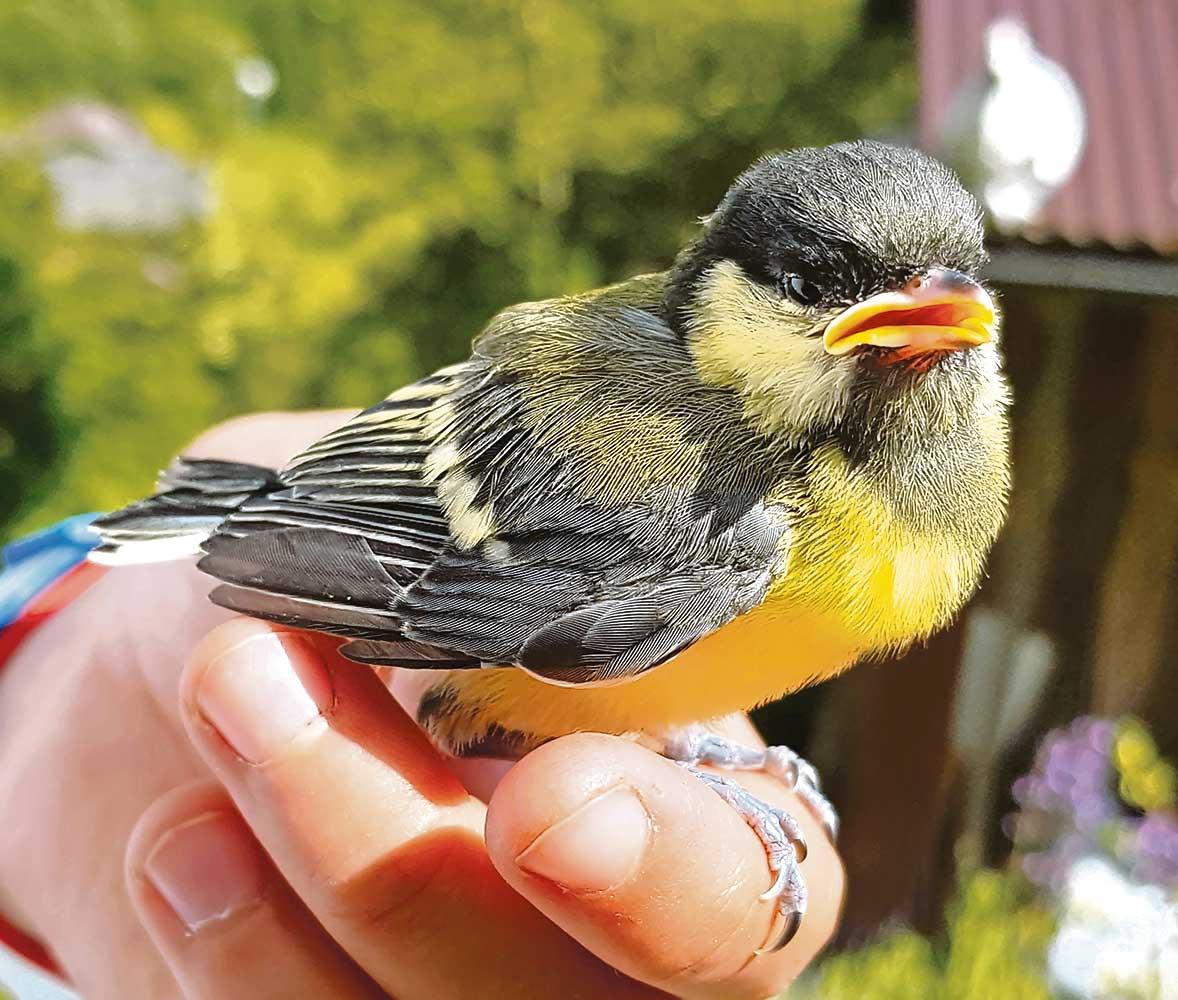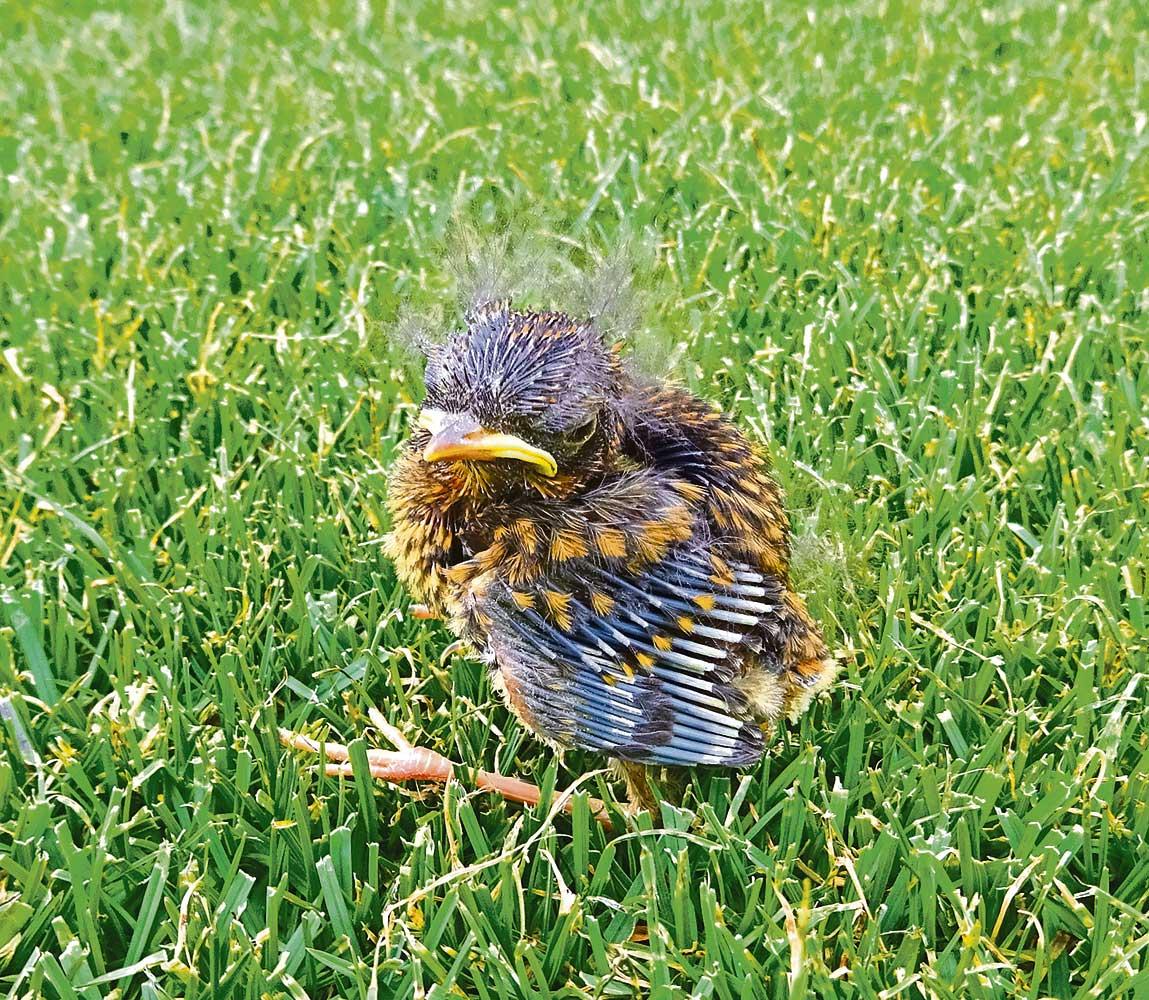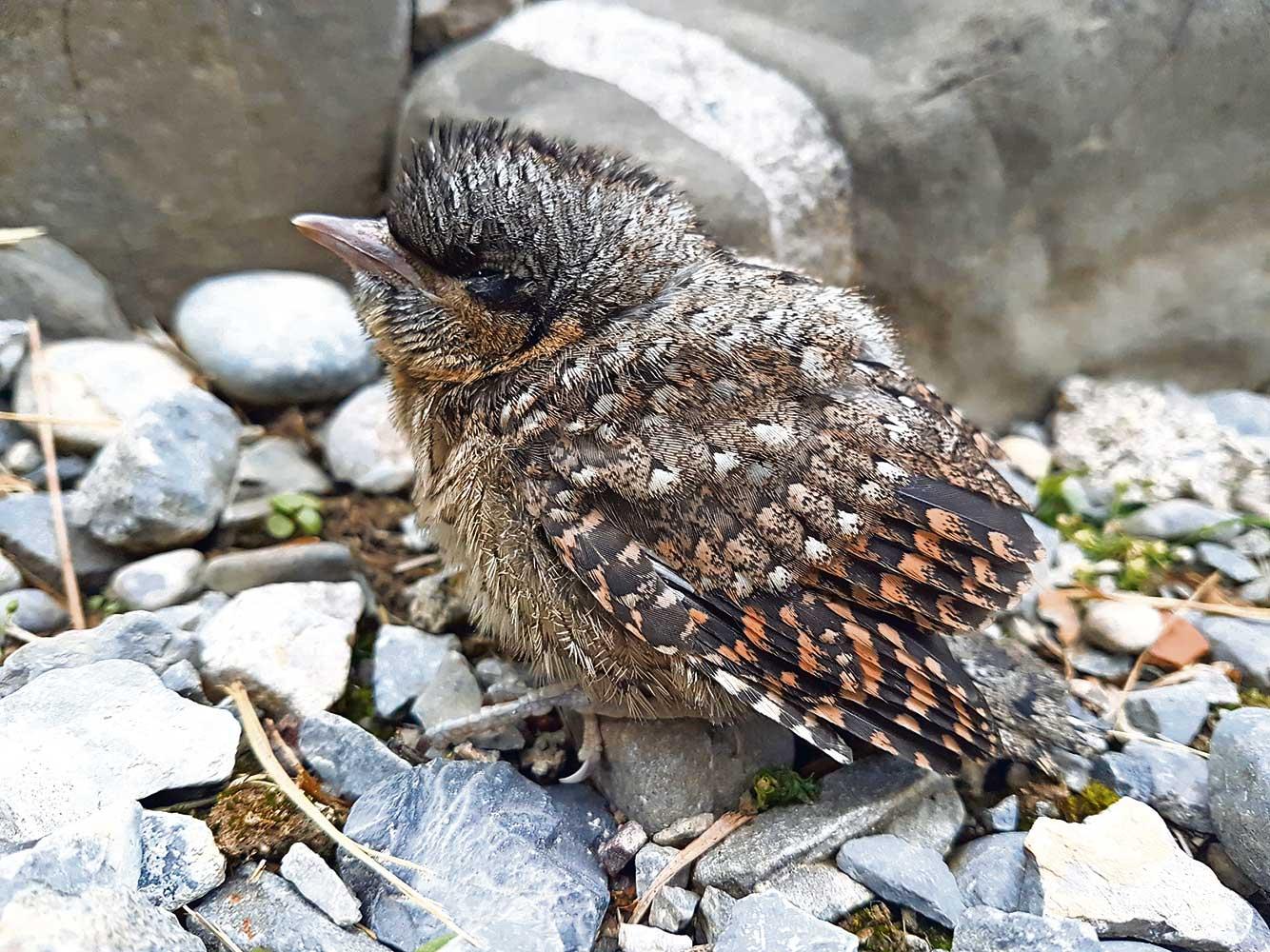Watch out for young birds!
10.06.2021 Local NewsMost of them have been lovingly cared for by the parent birds in the nest for about two weeks and have been fed protein-rich food such as beetles and caterpillars almost every quarter of an hour. At some point, the big day of fledging arrives, whether instinctively because the time has come or – as is often the case – due to an unwanted disturbance by humans, cats or nest-plundering magpies and crows.
This is how it happens that you suddenly have such helpless creatures in front of you, which cannot yet fly properly and have no fear of humans and animal enemies. They may be touched, picked up and brought to safety in such situations without further ado, e.g. by moving them to a branch or under eaves in a place protected from the weather.
It would be wrong to take the young birds into human care, thinking that they are parentless and abandoned. This is seldom the case because the parent birds are and remain in contact with them through their whistling. In addition, the Nature Conservation Act prohibits the taking of free-living, protected animals without a cantonal permit.
Based on AvS/Bert Inäbnit







